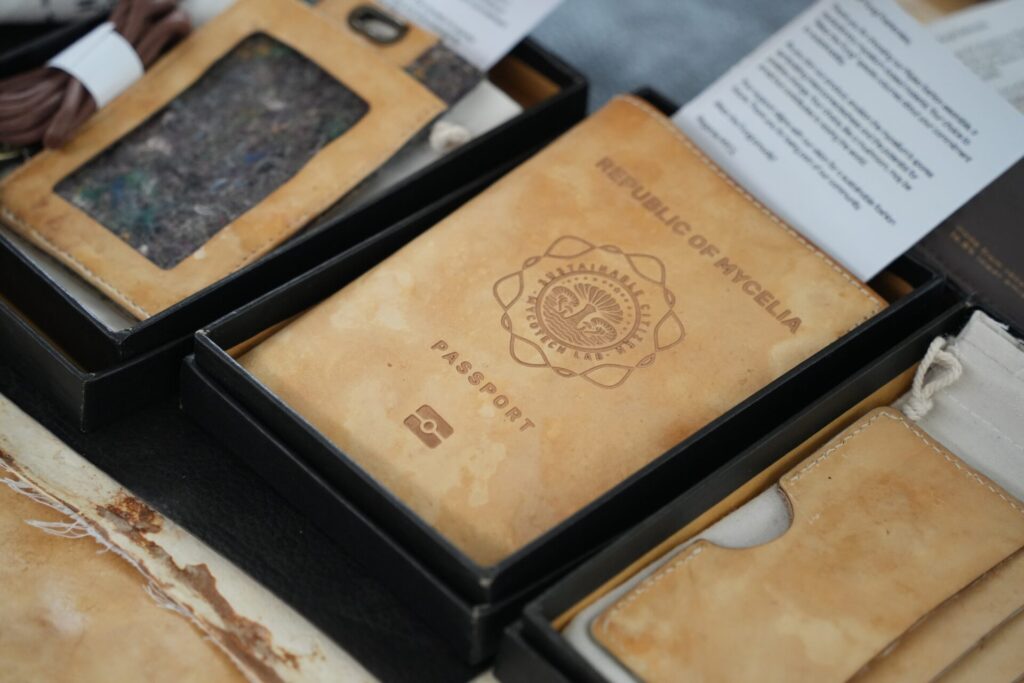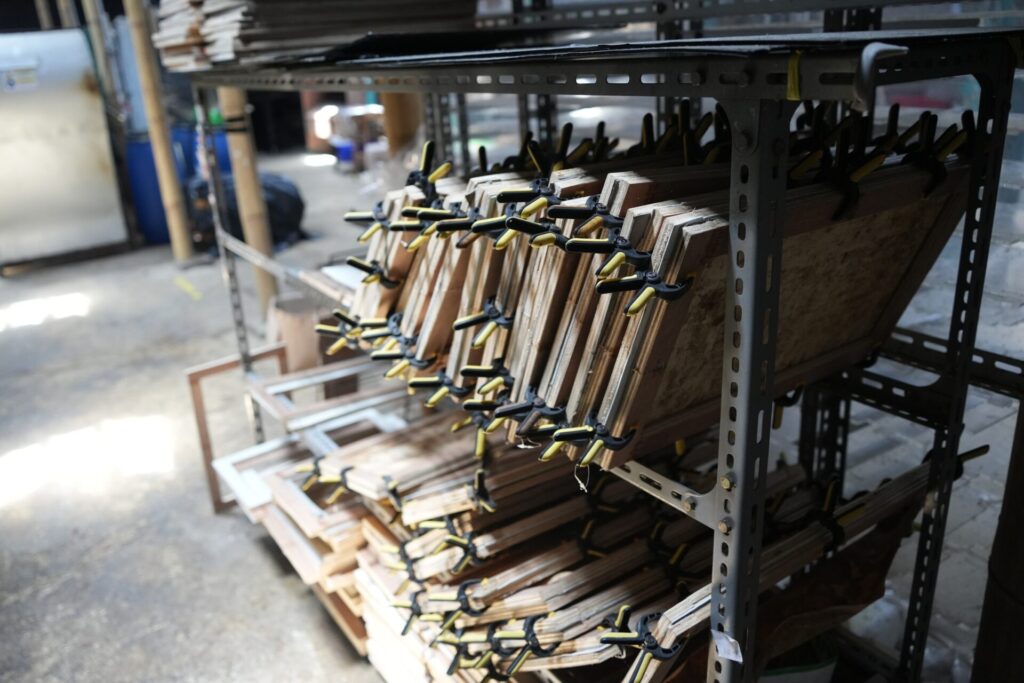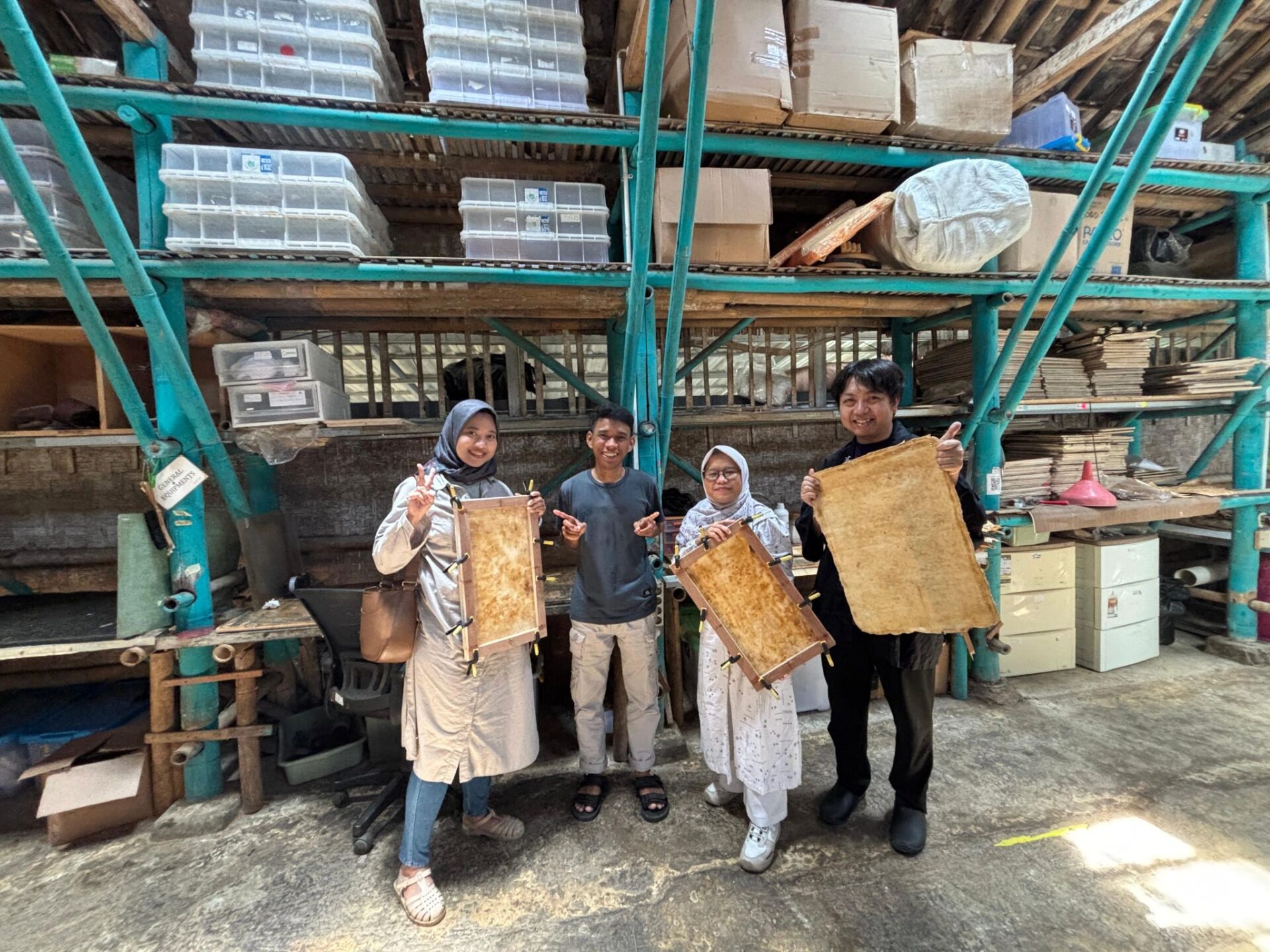Bandung, Indonesia – February 10, 2025 – Kengo Suzuki, President of Tsunan Sake Brewery Co., Ltd. (Headquarters: Tsunan Town, Nakauonuma District, Niigata Prefecture, Japan), visited MYCL’s facility in Bandung, Indonesia, to engage in discussions on regenerative sustainability utilizing microbial biotechnology. MYCL is a biotechnology startup specializing in the development of sustainable materials using mycelium, converting agricultural waste into innovative alternative materials. This visit served as an opportunity to concretize and share ideas on how biomass-related environmental technologies can contribute to human well-being.
Background
Tsunan Sake Brewery, known for its snow-aged brewing methods in the harsh natural environment of Niigata, has long been engaged in sustainable fermentation using rice as a primary raw material. Currently, the company is actively working toward “regenerative sake brewing,” integrating circular fermentation processes with scientific innovation.
The purpose of this visit to MYCL was to explore how existing scientific and technological advancements could contribute to improving productivity, maintaining quality, and adding value to previously non-recyclable waste. By observing MYCL’s production site, discussions focused on the potential of mycelium biotechnology in these areas.
MYCL Production Site Tour
During the visit, Tsunan Sake Brewery had the opportunity to tour MYCL’s cutting-edge production facility and gain in-depth knowledge of its innovative material production process using mycelium. The key processes observed included:
- Mycelium Substrate Production: A process that utilizes agricultural waste as raw material to create an optimal environment for mycelium growth. The facility maintains precise temperature and humidity conditions to ensure stable fungal propagation.
- Mycelium Growth Process: A stage where mycelium is cultivated on the substrate over a specific period, allowing it to grow under controlled conditions to form a material comparable in strength and texture to traditional animal leather.
- Leather Material Extraction from Mycelium: A process in which the matured mycelium layer is carefully removed from the substrate and tanned to create durable and flexible leather-like materials. This method minimizes the use of chemical treatments, emphasizing eco-friendly production techniques.
This factory tour provided firsthand insights into MYCL’s advanced biotechnology and sustainable production methods, reaffirming the potential for developing circular materials using mycelium. The synergy between MYCL’s mycelium-based innovations and Tsunan Sake Brewery’s fermentation expertise opens new possibilities for future applications.


Discussion Topics
Through this discussion, it became evident that by integrating different technologies, further progress toward a sustainable and regenerative society could be achieved. Key discussion points included:
- Integration of Fermentation Technology and Mycelium-Based Materials: Exploring the potential of combining microbial fermentation with mycelium-based materials to develop novel biodegradable materials and utilize brewing byproducts effectively.
- Circular Utilization of Local Resources and Upcycling Technologies: Leveraging agricultural waste and food byproducts to develop new materials while integrating fermentation technologies to accelerate the transition to a circular economy.
- Production Technologies Supporting Environmental Improvement and Well-being: Advancing sustainable fermentation and brewing processes alongside new material innovations to simultaneously enhance economic, environmental, and quality-of-life aspects.


Comment from Kengo Suzuki, President of Tsunan Sake Brewery
“Regenerative sustainability is not just about reducing environmental impact; it is about actively restoring and enhancing ecosystems. Through this visit to MYCL, I was able to understand how local biomass, particularly wood-based materials, can be transformed by microbial activity into food and biomaterials. By further advancing technological developments, we aim to create additional economic benefits while enhancing environmental resilience and improving human well-being.”
About MYCL
MYCL holds proprietary cultivation technology for mycelium-based composite materials, with its flagship product, Mylea™, gaining recognition as a biodegradable, animal-free leather alternative. By utilizing microbial fermentation, MYCL transforms agricultural waste into functional materials, contributing to the realization of a circular bioeconomy.
https://mycl.bio/
About Tsunan Sake Brewery
Tsunan Sake Brewery is a Japanese sake brewery headquartered in Akinari, Tsunan Town, Nakauonuma District, Niigata Prefecture. The region is known for heavy snowfall, and the brewery uses natural spring water from the 2,000-meter-high mountains for sake production. Utilizing locally grown rice such as Gohyakumangoku and Uonuma Koshihikari, Tsunan Sake Brewery embraces a brewing philosophy that harmonizes with nature. Its brand concept, “Brew for Future – Brewing a Future of Coexistence,” reflects this commitment. Since 2023, under a new leadership structure, the brewery has been integrating science with sake brewing to create new value and expand its presence internationally.
https://tsunan-sake.com/


